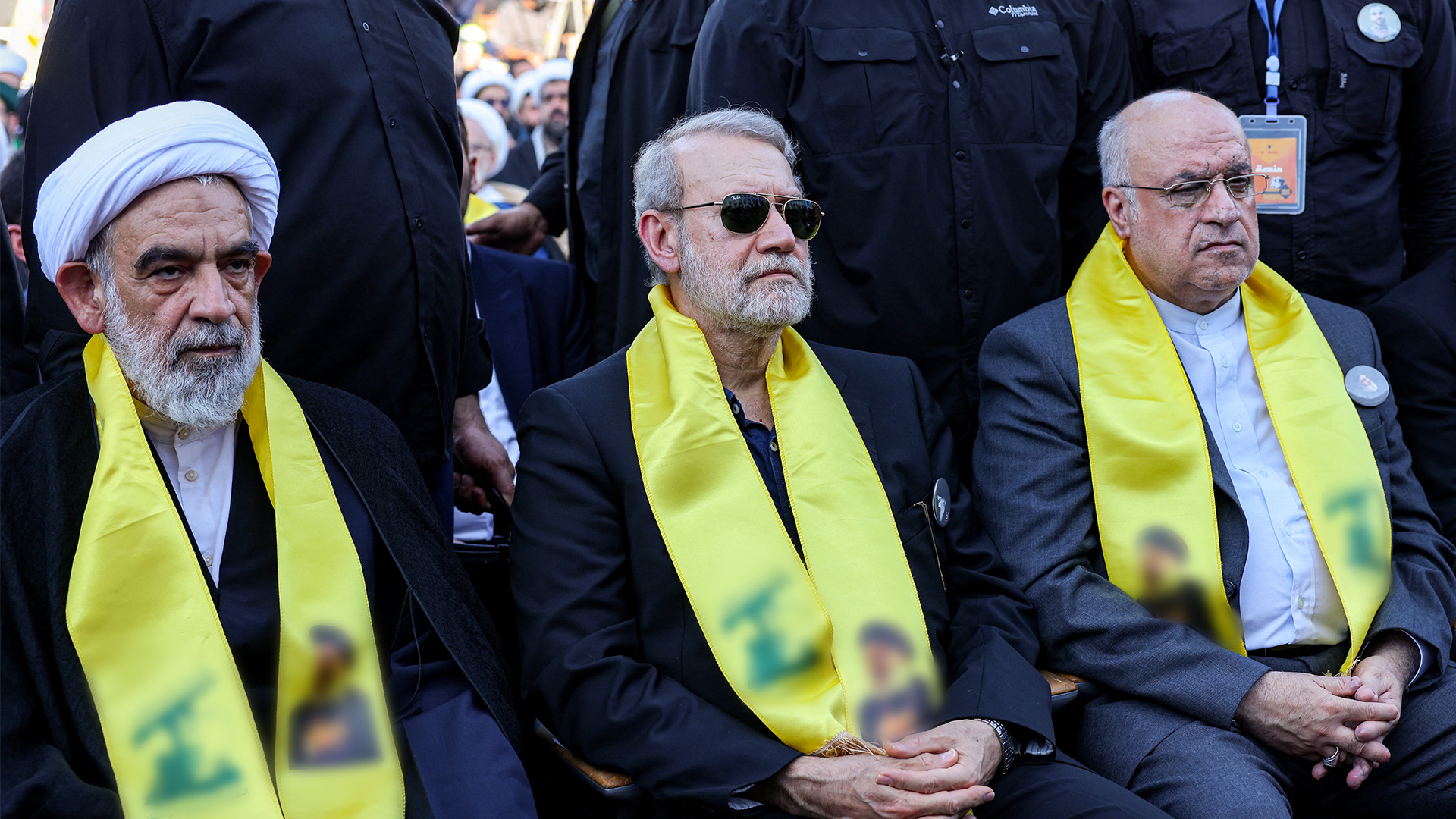Hezbollah Marks Nasrallah Anniversary with Defiant Pledge to Keep Arms
Iranian security chief Ali Larijani’s presence at the ceremony underscored Tehran’s continuing support for Hezbollah, which it views as a frontline force against Israel.

ERBIL (Kurdistan24) — Hezbollah’s deputy leader Naim Qassem on Saturday defiantly rejected calls for the group to disarm, vowing before tens of thousands of supporters that the Iran-backed movement would never relinquish its weapons.
The declaration came during a mass commemoration in Beirut marking one year since Israel killed his predecessor Hassan Nasrallah in a targeted airstrike.
“We will never abandon our weapons, nor will we relinquish them. We are ready for martyrdom,” Qassem told the crowd at Nasrallah’s tomb near Beirut airport, where yellow Hezbollah banners flew alongside Lebanese, Palestinian, and Iranian flags.
Supporters chanted “death to America, death to Israel” as partisan songs blared, underscoring the group’s resistance narrative.
Hezbollah’s once-dominant grip on Lebanese politics has weakened since last year’s war with Israel, which decimated much of its military infrastructure and killed both Nasrallah and second-in-command Hashem Safieddine.
In the aftermath, the Lebanese government formally tasked the army with drafting a plan to disarm the group — a demand strongly backed by the United States and welcomed by Israel.
Lebanese President Joseph Aoun on Saturday reiterated his call for a unified national army and institutions that “protect sovereignty and uphold dignity,” signaling Beirut’s determination to end Hezbollah’s parallel military structure.
Israeli Prime Minister Benjamin Netanyahu, speaking at the UN General Assembly a day earlier, praised Lebanon’s initial steps but insisted he expected “more than words.”
Despite the political pressure, Hezbollah’s base remains unyielding. Many of those attending Saturday’s memorial described disarmament as a betrayal of the sacrifices made.
“What has happened since the last war has only increased our enthusiasm and strength. We will not hand over our weapons,” said Wisam Hodroj, a 51-year-old supporter who traveled from Iraq for the event.
Younger voices echoed that sentiment: “Handing over the weapons is the dream of the enemies… but it will remain just a dream,” said Ali Jaafar, a 21-year-old student.
Iranian security chief Ali Larijani’s presence at the ceremony underscored Tehran’s continuing support for Hezbollah, which it views as a frontline force against Israel.
Larijani, who last visited Lebanon in August 2025, has long served as a key channel between Tehran and its regional allies, reinforcing Iran's role as Hezbollah's principal backer
His attendance at the anniversary gathering was widely seen as both a symbolic gesture of solidarity and a clear message to Israel and Western powers that Iran’s commitment to Hezbollah remains undiminished despite mounting international pressure.
Since October 2023, Hezbollah has launched cross-border rocket attacks in solidarity with Hamas in Gaza, triggering escalating clashes with Israel that spiraled into a two-month war in late 2024 before a fragile ceasefire was reached.
Israel, however, has continued to conduct airstrikes in Lebanon and maintains troops at several contested border points. Western and regional powers fear renewed escalation if Hezbollah refuses to disarm.
Hezbollah remains the only faction allowed to keep its weapons after Lebanon’s 1975-1990 civil war, justified at the time as a resistance force against Israeli occupation in the south.
Today, critics argue that rationale has expired, with Hezbollah’s arsenal instead undermining Lebanese sovereignty and entrenching the country in regional conflicts.
Yet for Qassem and his followers, the movement’s weapons symbolize survival and defiance. The group’s refusal to disarm — even after losing its iconic leader and suffering heavy battlefield losses — highlights the enduring role of Hezbollah as both a domestic power broker and a flashpoint in Middle Eastern geopolitics.